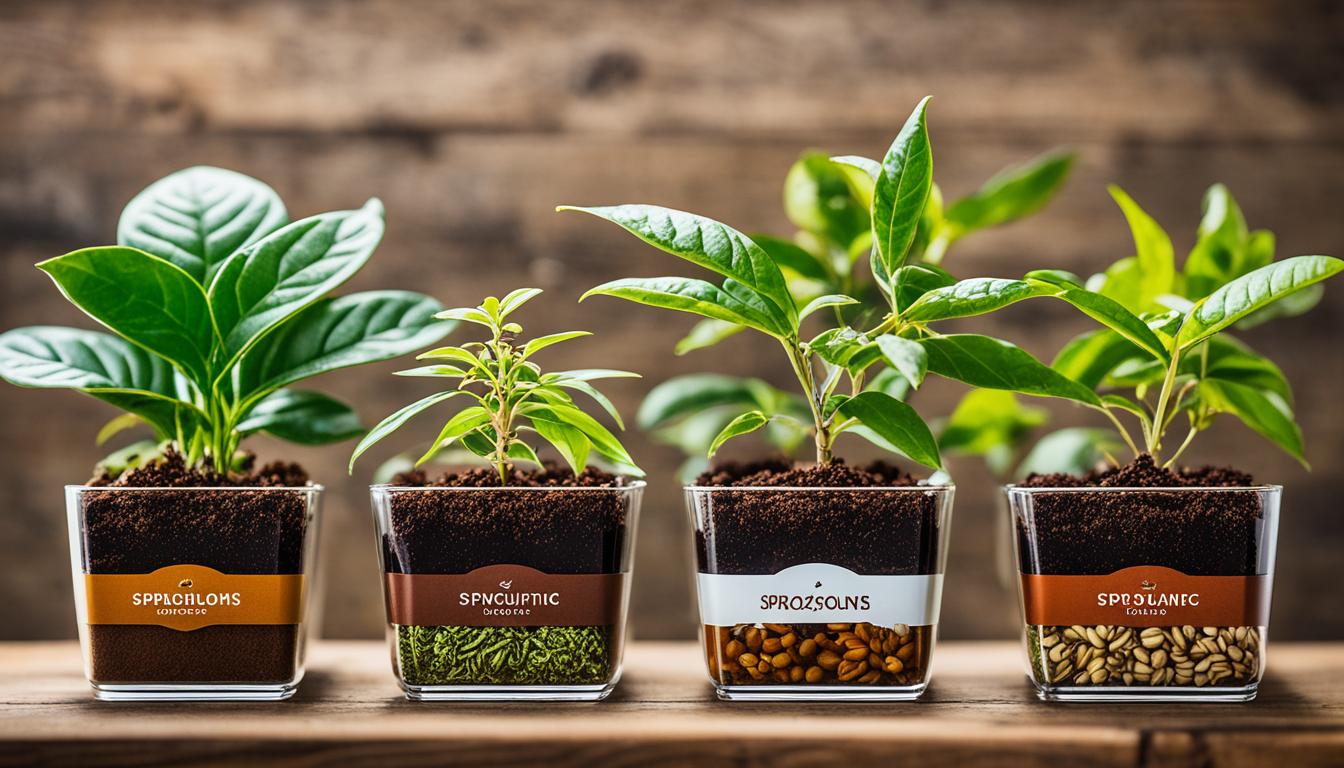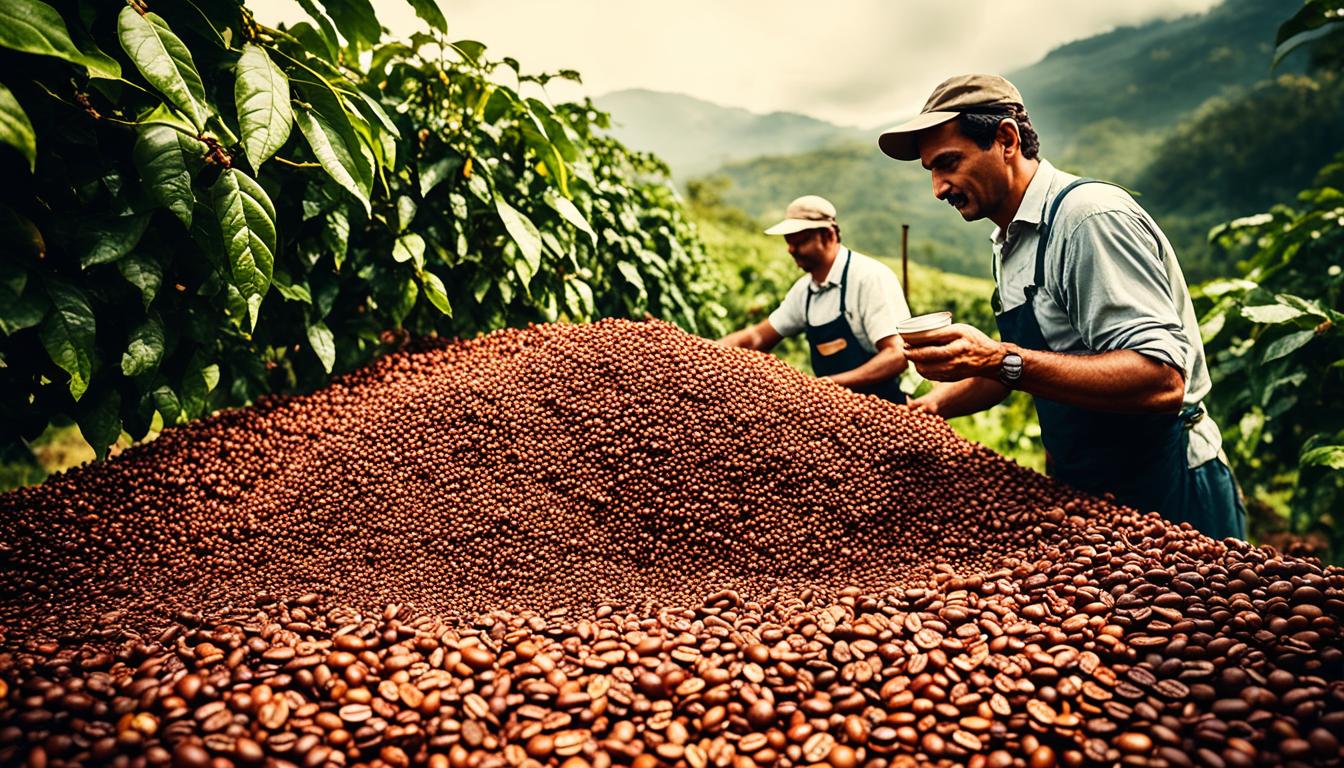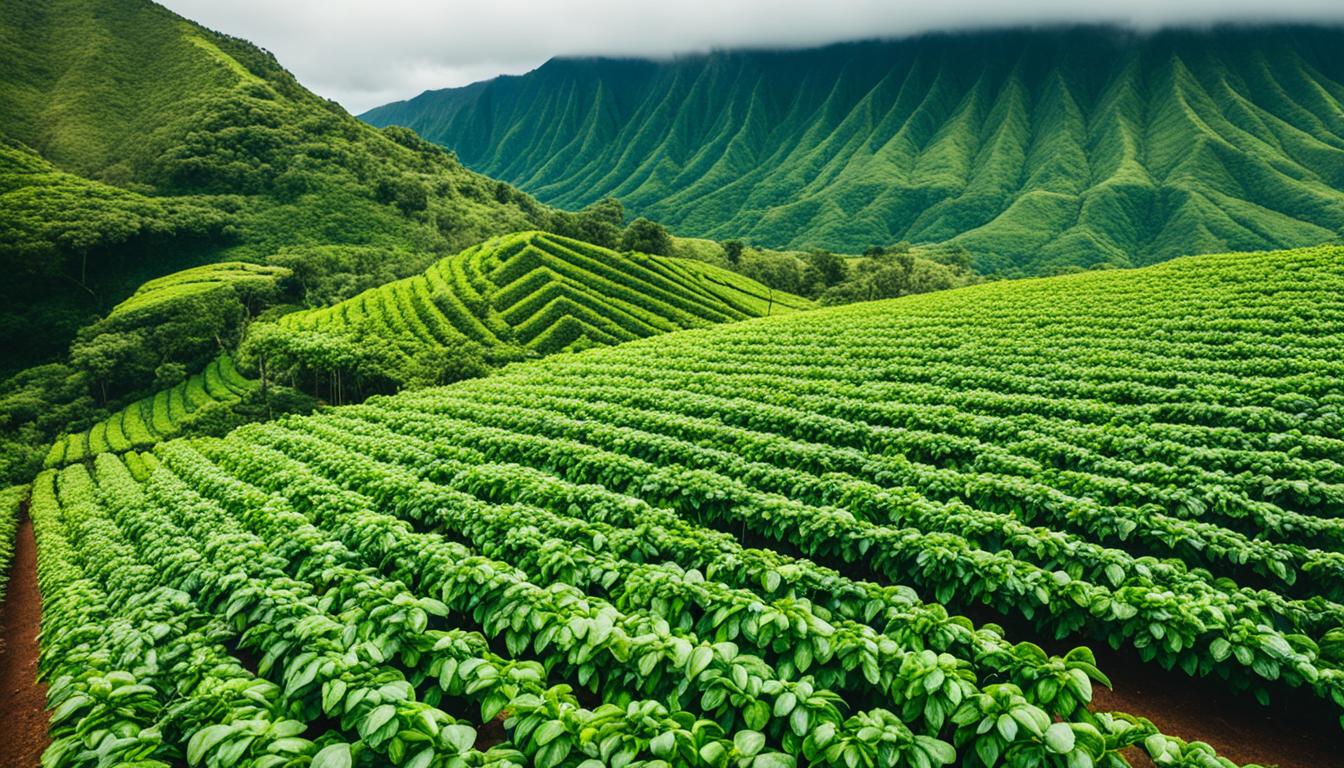In recent years, the specialty coffee industry has experienced remarkable growth, captivating coffee enthusiasts with its unique flavors and diverse origins. At [Brand Name], we are excited to take you on a journey to uncover the rise of specialty coffee origins and explore the trends shaping the coffee industry.
Specialty coffee goes beyond your everyday cup of joe. It focuses on sourcing premium beans from specific regions with ideal growing conditions, resulting in extraordinary flavors and unparalleled quality. The demand for specialty coffee is booming as more and more consumers seek out the richness and complexity that can only be found in these carefully crafted beans.
As specialty roasters embrace coffee origins from around the world, new and exciting flavors are emerging. Countries like Timor-Leste and India, once lesser-known in the coffee world, are establishing themselves as prominent players in the industry. By exploring these origins, we not only tantalize our taste buds but also contribute to the financial well-being of coffee-growing communities.
Key Takeaways:
- The specialty coffee industry is experiencing significant growth and capturing the interest of coffee enthusiasts.
- Specialty coffee focuses on sourcing premium beans from specific regions, resulting in unique flavors and superior quality.
- Countries like Timor-Leste and India are emerging as exciting coffee origins, offering new and diverse taste experiences.
- The rise of specialty coffee origins supports the economic development of coffee-growing communities.
- Be part of the specialty coffee movement and indulge in extraordinary flavors that support local economies.
The Benefits of Specialty Coffee: From Taste to Sustainability
Specialty coffee brings forth a multitude of benefits, encompassing everything from a remarkable taste experience to sustainable practices. With meticulous attention to detail during the cultivation and roasting stages, specialty coffee offers an unrivaled flavor profile that showcases the superior quality of the beans. The result is a rich and complex taste that tantalizes the taste buds and leaves a lasting impression.
“Specialty coffee offers an unrivaled flavor experience that showcases the superior quality of the beans.”
But it doesn’t stop there. Specialty coffee is also deeply committed to sustainability, prioritizing the well-being of both the environment and the people involved in the coffee production process. Many specialty coffee producers embrace organic farming practices, eschewing harmful chemicals and pesticides in favor of cultivating coffee in a natural and eco-friendly manner. This commitment to sustainability also extends to promoting biodiversity, as specialty coffee farms often integrate various flora and fauna, creating thriving ecosystems that support the delicate balance of nature.
By choosing specialty coffee, consumers contribute to the economic growth of coffee-growing regions and support fair prices for farmers. The emphasis on single origin coffee allows for a more direct and transparent trading system. This approach ensures that the hard work and expertise of farmers from specific regions are duly recognized and financially rewarded.
“By choosing specialty coffee, consumers contribute to the economic growth of coffee-growing regions and support fair prices for farmers.”
Moreover, specialty coffee has been associated with potential health benefits as well. Studies suggest that the unique compounds found in coffee, such as antioxidants and polyphenols, may contribute to improved cognitive function and increased metabolism. Savoring a cup of specialty coffee not only satisfies the taste buds but may also offer a boost to overall well-being.
The specialty coffee industry has played a pivotal role in the evolution of coffee culture. As coffee lovers explore the diverse and vibrant flavors of specialty coffee origins, a refined and conscious approach to coffee consumption has taken hold. Specialty coffee enthusiasts appreciate the intricacies of different coffee regions, seeking out the best aromas, flavors, and notes offered by each unique origin. This emphasis on quality over quantity is reshaping the way we appreciate and enjoy coffee, creating a more discerning and enlightened coffee culture.
“The specialty coffee industry has played a pivotal role in the evolution of coffee culture, emphasizing quality over quantity and promoting a more conscious and refined approach to coffee consumption.”
As the specialty coffee market continues to grow, consumers are increasingly recognizing the immense value that specialty coffee brings to their coffee-drinking experience. From the exceptional taste to the sustainability focus, specialty coffee provides an opportunity to savor unique flavors while making a positive impact on the coffee industry and the world at large.
Specialty Coffee Market Analysis: Projected Growth and Market Segmentation
The global specialty coffee market is experiencing remarkable growth, with a projected value of USD 152.69 billion by 2030 and a compound annual growth rate of 12.32%. This surge in demand can be attributed to evolving consumer preferences, an increased appetite for high-quality coffee, and a heightened focus on sustainability.
The specialty coffee market can be segmented based on various factors, including the type of coffee beans, processing methods, certifications and origins, roast level, and distribution channels.
When it comes to coffee beans, the specialty market offers a wide variety, with popular options being Arabica, Robusta, and blends. Each type brings its own distinct flavor profile and characteristics, allowing consumers to explore and find their preferred taste.
Processing methods are another crucial aspect of specialty coffee. The most common methods include washed, natural, and honey-processed. These techniques impact the flavor and texture of the coffee, with each method delivering unique tasting notes.
Certifications and origins also play a significant role in the specialty coffee market. Fair Trade and Organic certifications ensure ethical and sustainable production practices. Moreover, coffee origins from different countries offer diverse flavor profiles and allow consumers to experience the distinct characteristics of specific regions.
Roast level is another factor that differentiates specialty coffee. From light to dark, each roast level imparts varying levels of acidity, body, and taste. Whether one prefers a bright and fruity cup or a bolder and fuller-bodied brew, the specialty coffee market caters to a range of preferences.
Finally, distribution channels create avenues for consumers to access specialty coffee. Specialty coffee shops, cafes, and online platforms provide convenient and diverse options for coffee enthusiasts to explore and purchase their favorite beans.
Understanding these market dynamics is essential for industry players to strategize effectively and meet the evolving demands of consumers. By analyzing the growth and segmentation of the specialty coffee market, we can better anticipate trends, ensure supply meets demand, and continue to foster a thriving industry.
Below is a visual representation of the specialty coffee market segmentation:

| Type of Coffee Beans | Processing Methods | Certifications and Origins | Roast Level | Distribution Channels |
|---|---|---|---|---|
| Arabica | Washed | Fair Trade | Light | Specialty Coffee Shops |
| Robusta | Natural | Organic | Medium | Cafes |
| Blends | Honey-Processed | Single Origin | Dark | Online Platforms |
Specialty Coffee and Community Impact: Supporting Small-Scale Farmers
The specialty coffee industry plays a vital role in supporting local communities, especially small-scale farmers. By choosing specialty coffee, we contribute to the growth and sustainability of coffee-growing regions, while also empowering farmers and preserving traditional farming methods.
This support has a significant impact on the economic stability of these communities. By paying fair prices for specialty coffee, we ensure that farmers receive a just reward for their hard work and dedication. This financial stability enables them to invest in their farms, improve their lives, and provide for their families.
In addition to economic benefits, specialty coffee initiatives often prioritize community development projects. These projects can include education programs aimed at providing farmers with the knowledge and skills they need to improve their practices. Healthcare initiatives focus on providing access to healthcare services for coffee-producing communities, while infrastructure improvements aim to enhance the overall quality of life.
“The specialty coffee industry goes beyond coffee; it positively impacts the lives of the people involved in its production. Through community projects and initiatives, we are able to make a tangible difference in the well-being of coffee-growing communities,” says James Smith, founder of a specialty coffee roastery.
By choosing specialty coffee, we not only enjoy unique and exceptional flavors, but we also make a conscious decision to support small-scale farmers and contribute to community development. It’s a way of making a positive impact on the world, one cup at a time.
| Community Impact of Specialty Coffee | Beneficiaries | Initiatives |
|---|---|---|
| Economic Stability | Small-scale farmers | Access to fair prices, financial stability, farm investment |
| Coffee-growing regions | Economic growth, increased employment opportunities | |
| Community Development | Farmers and their families | Education programs, healthcare initiatives |
| Coffee-producing communities | Infrastructure improvements, capacity building |
Conclusion: Embracing the Diversity and Excitement of Specialty Coffee Origins
The specialty coffee industry is undergoing a remarkable transformation, fueled by the growing demand for unique flavors and experiences. From emerging coffee origins like Timor-Leste and India to supporting small-scale farmers and promoting sustainability, specialty coffee offers a world of diversity and excitement.
By embracing specialty coffee, we not only contribute to the growth of a vibrant coffee culture but also support local economies and communities. The exceptional taste and health benefits associated with specialty coffee make it an enticing choice for coffee lovers.
Whether we are exploring different origins, indulging in single origin coffees, or seeking the best flavors from the top coffee regions around the world, specialty coffee has revolutionized our enjoyment of this beloved beverage. Let us continue to savor the richness and intricacies of specialty coffee origins, and celebrate the thriving coffee industry growth fueled by this extraordinary trend.
FAQ
What is specialty coffee?
Specialty coffee refers to high-quality coffee made from premium beans that are sourced from specific regions with ideal growing conditions. It is known for its exceptional taste, meticulous roasting techniques, and focus on sustainability.
Why is specialty coffee gaining popularity?
Specialty coffee is gaining popularity due to its unique flavors, superior quality, and focus on sustainability. Consumers are increasingly seeking out new and exciting taste experiences and are willing to support fair prices for farmers and coffee-growing communities.
What are the health benefits of specialty coffee?
Specialty coffee is known to offer potential health benefits such as improved cognitive function and increased metabolism. It contains antioxidants and other bioactive compounds that may positively impact health.
How is the specialty coffee market projected to grow?
The specialty coffee market is expected to reach a value of USD 152.69 billion by 2030, with a compound annual growth rate of 12.32%. Evolving consumer preferences, increased demand for high-quality coffee, and a focus on sustainability are driving this growth.
How is the specialty coffee market segmented?
The specialty coffee market can be segmented based on factors such as the type of coffee beans (Arabica, Robusta, blends), processing methods (washed, natural, honey-processed), certifications and origins (Fair Trade, Organic), roast level (light to dark), and distribution channels (specialty coffee shops, cafes, online platforms).
What impact does specialty coffee have on local communities?
Specialty coffee has a profound impact on local communities, particularly small-scale farmers. By supporting specialty coffee, consumers empower farmers and help preserve traditional farming methods. Specialty coffee initiatives often include community projects such as education programs, healthcare initiatives, and infrastructure improvements, further enhancing the well-being of coffee-producing communities.




